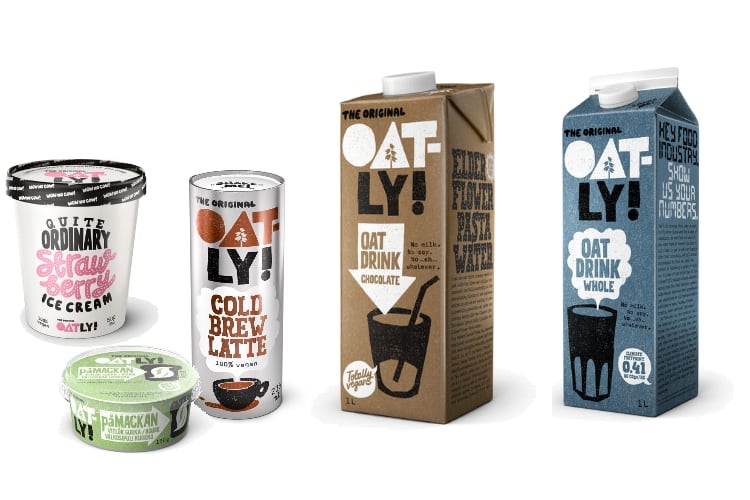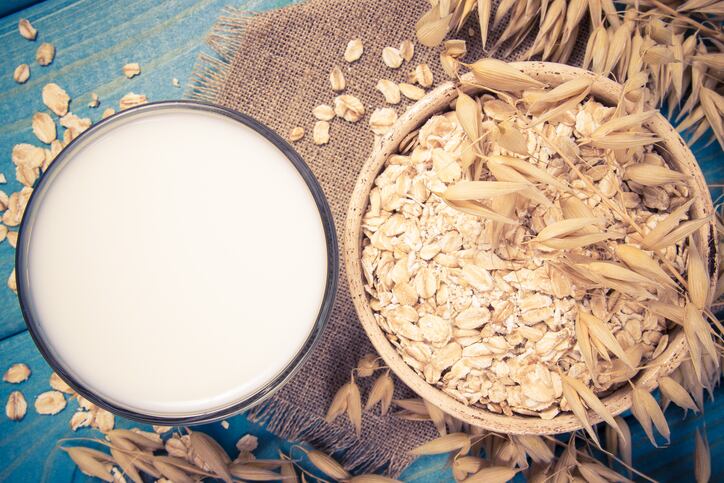The country has been going crazy for cappuccino and doolally for latte, so it should not be a herculean task to establish a thriving operation that offers a dairy alternative to people for whom dairy causes some discomfort.
To this end, the Swedish oat beverage manufacturer has been gaining a foothold into the country as a first step into Asia, ahead of coming expansion this year, when new factory openings will help ensure adequate supplies.
In 2016, the brand launched in Hong Kong, and is now sold in supermarkets, as well as Starbucks and Pacific Coffee outlets and independent cafes in the territory. It has since opened an office in China, to prepare for a launch there, and brought out a new Chinese character to signify “vegan milk” and attract more milk drinkers to its product.
Growth of milk
Although there are no official figures, studies have indicated that lactose intolerance affects around 30% of Chinese children, and a study of Chinese adults showed that 92% suffered from some level of lactose malabsorption.
Despite these limitations of the Chinese physiology, there has been a huge push to encourage greater milk consumption in the country.
Since the Eighties, dairy has accounted for a growing share of the Chinese diet. Over this time, Beijing authorities have been persuading citizens of the link between milk and improved health, and at the same time, greater exposure to Western lifestyles has cemented the proposition.
From 2000 onwards, schoolchildren have been given a free cup of milk each day. According to the latest Chinese dietary guidelines, laid out by China’s Ministry of Health in 2016, Chinese people should eat dairy products equal to 300ml or grams per day. Yet this goal is currently three times the 100g that the average adult currently consumes, according to research firm Mintel.
Increasing awareness
At the same time, as the government has been showing strong support for the dairy industry and encouraging it to produce more milk, the alternatives market has been growing. Oatly, the world’s biggest oat milk producer, has been seeking to make a category dominated by soy and almond milks its own, but first it has had to tackle its branding and low awareness of dairy alternatives.
For many Chinese, the “oat nectar” description given to Oatly’s products by retailers would suggest a mix of cow’s milk with chewy oats, a bit like a watery muesli. So last month, it created a new Chinese character last month that signifies “vegan milk” by combining the symbols for “plant” and “milk” to help consumers understand the nature of its products. The character will be displayed at point of sale in stores and coffee shops.
“Vegan milk” also fits nicely in line with Oatly’s marketing push across Asia, by which it describes its products as “the new milk”. The new character was launched in Hong Kong ahead of a concerted push into Greater China.
According to Oatly's research, 96% of consumers in Hong Kong, where dairy milk consumption is on the rise, only think of cow's milk when they see the Chinese word for milk. Only 2% think of plant-based milk.
In addition, just over half think there is no suitable alternative to cow’s milk in the market, though 73% say they would consider switching from cow's milk to plant-based milk if they knew more about why it's better for human body and the environment.
"We are bringing the debate of plant-based milk and cow's milk to Hong Kong and encouraging Hong Kong people to make well-informed milk consumption decisions,” said Oatly chief executive Toni Petersson at the launch of the character.
"Hong Kong people say they want more information and education about plant-based milk. We're here to help and tell people where to find the right products. We are not just doing this for our business, we’re doing this for the whole plant-based milk category.”
'Saving the world'
For Petersson, Oatly’s great march into the Chinese market is about both revenues and saving the world.
Though China is both the world’s third largest producer of milk and its top importer, accounting for about an eighth of global milk imports.
Growing dairy demand in the country is putting pressure on China’s nearly 13m dairy cows and pasture, leading Oatly’s chief executive to suggest that the company’s push into China as an “ethical obligation” due to the impact dairy farming has been having on the environment there.
“The worst thing that could happen is if the Chinese people started to drink dairy milk, because there wouldn’t be enough cows in the world to support that,” he said in The Guardian.
If a recent assessment Petersson made turns out correct, the company will see up to a fivefold increase in sales in Hong Kong and China this year, and this growth will only be constrained by supply limitations.
This is being fueled by a new generation of Chinese consumers who have switched on to Western lifestyles, such as lounging in coffee shops. Being health-conscious, they are becoming more aware of the nutritional differences between products, and are self-aware enough to know the foods their bodies don’t react well to.
It is this market brands like Oatly are banking on as it seeks to replicate the impact it has already had in Europe and North America.


